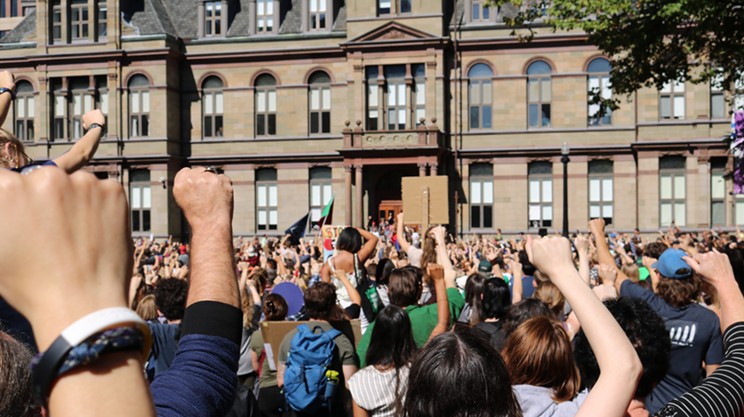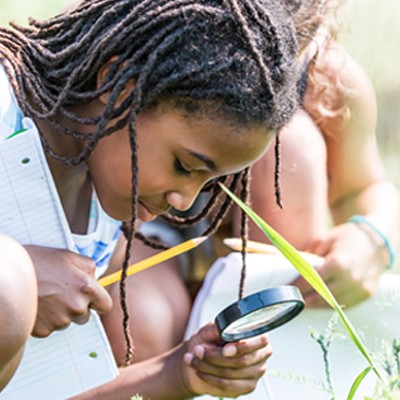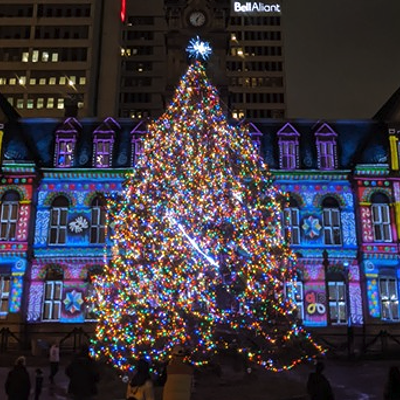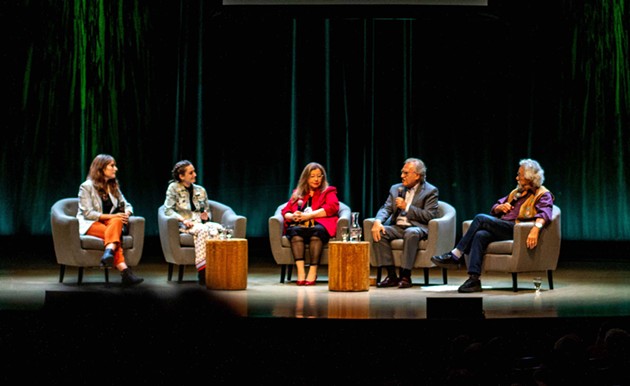
A few days before the Halifax stop of their Climate First Tour, renowned scientist and author David Suzuki and Stephen Lewis, humanitarian and former ambassador for Canada to the United Nations, spoke with me over the phone from Vancouver. While we were speaking, millions of people around the world were striking for climate action, inspired by Swedish teenager Greta Thunberg.
The school strikes and the youth-led movement for a Green New Deal have both helped propel the climate crisis to the forefront of conversations over the past year, and Lewis says he sees the youth climate movement as having the potential to influence the Canadian federal election. “There's no underestimating the impact of politicians in the middle of a campaign—they are hugely susceptible to pressure. I think politicians will feel that they have to start considering themselves to be climate champions.”
Stephen Lewis and David Suzuki have set out on a cross-Canada tour in the lead-up to the October 21 federal election to talk about climate change because, as Suzuki says, “this is the most important election, certainly in my lifetime, because what we do or do not could very well determine whether our children really have a shot at a decent future. So it's a very, very critical moment.”
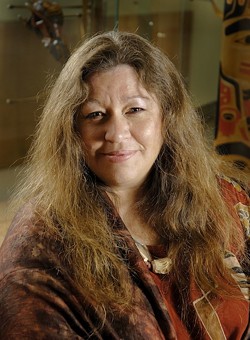
Suzuki and Lewis were joined by a special guest at the Halifax stop this week. Independent filmmaker and member of the Millbrook Mi’kmaq First Nation, Catherine Martin. Martin is somewhat more wary of the election.
“It is a lot of talk during the election time. As a member of the Mi’kmaq Nation and the Indigenous peoples across the country, I can say for sure that we were promised [a lot]—and a lot of us stood behind this new leader—we found that those promises weren't kept.” However, she too sees the potential for the recent climate momentum to create change in the political sphere because “I believe that any change that's been made in a true democracy has been made by the people.”
Suzuki says the name for the speaking tour, Climate First, is such because, “We've forgotten that the message of environmentalism is that everything is connected to everything else...We may say ‘climate first,’ but that climate first is simply to get us into the whole way that we're living on this planet, and we're embedded in this world.”
This connectedness is something Suzuki believes we have much to learn from Indigenous peoples on. “Indigenous people retain a sense of embeddedness in the natural world that we have lost,” he says. “We think that the whole world is there for us, it's just a matter of exploiting the world more responsibly so we don't damage that air, water, and soil, but we've got to keep our economic engine going... . Indigenous people are telling us something fundamental: that there are things more important than money.”
For Martin, the idea that our connection to the natural world is more important than money rings true. “Those who are wealthy and living the good life,” she says, “they don't look seven generations behind us and seven generations ahead, like my ancestors did when they knew that treaties were going to keep us, you know, as Mi’kmaq, the caretakers of our land.”
While Suzuki sees the tension between protecting the environment and maintaining an economy reliant on extraction all across Canada, he sees the influence of corporations on government decisions particularly strongly in Nova Scotia. “There is enormous vested interest in the status quo because corporations are a huge part of the economy,” he says. “I happen to think they're not a big enough part of our economy—we're not taxing them properly—but we have to understand that...we elect them to look out for our interests, not for corporate interests. Corporations have one priority, and that is to make money. That is their major priority, and what the impact of what they do has on the environment, around people, is not a high priority with them.”
One solution that has been proposed to protect public interests and tackle this tension between the economy and the environment is the Green New Deal, a climate action and job creation plan which has spread to Canada from the United States. “To me, the Green Deal is like people are just catching up to what we already know,” says Martin. “Yet, we are, in our communities, rather helpless. Our voice in this country has been silenced. Since the arrival of the immigrants—the British and the French—there's been a lot of work to try to stop us from continuing to live on our land, according to the heartbeat and the way of this land. So the Green Deal, I'm all for it, because it's always been part of our worldview in our thinking.”
For Lewis, “The Green New Deal is not merely a matter of reducing fossil fuel emissions.
“It's also a matter of building a new society and transforming the society we have into one that is vastly more cooperative and directed at community, and the election is an opportunity to put it at the top of the agenda,” he says.
With this, Lewis sees the potential for the youth-led climate movement to make a difference in this election. He says he hopes “that the pressure from young people over the course of these several weeks will result, on October 21, in getting a lot of people into the House of Commons who see that climate change and the Green New Deal are at the top of the list.”
For Suzuki, this isn't going to end with the election: “We have to keep the people that we do elect—keep their feet to the fire to be sure that the climate remains the number one issue after the election.”
In Halifax, youth and citizens will be striking for the climate on Friday, September 27, starting at 11am at Victoria Park (Spring Garden Road and South Part Street).

